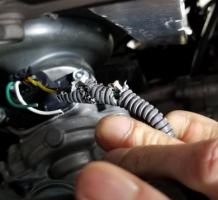
— A Honda rodent class action lawsuit has been dismissed after the plaintiffs failed to provide adequate evidence the soy-based wiring insulation made the vehicles defective.
The Honda rodent lawsuit is consolidated from Michael Preston v. Honda, and Jay Caracci v. Honda.
Preston filed his Honda class action after rodents chewed on the electrical wiring of his 2015 Honda Accord causing power steering problems. The plaintiff asserts the problem was caused by Honda's decision to switch to soy-based wiring insulation.
This allegedly caused rodents and other animals to gnaw and damage the wiring, but Honda failed to warn consumers about the “soy-based wiring defect."
Honda allegedly breached its warranty by refusing to repair or replace the allegedly defective wiring.
The first amended Honda rodent class action lawsuit added named plaintiff Penelope Turgeon who contends her 2017 Honda Civic twice malfunctioned due to successive incidents of rodent damage to its electrical wiring.
The rodent lawsuit was dismissed by a California court for failure to state a claim, but the plaintiffs appealed to the Ninth Circuit. The appeals court affirmed the dismissal of the Honda class action but remanded the case back to the district court to allow the plaintiffs to once again change and refile the rodent lawsuit.
By that time, plaintiff Jay Caracci had filed a separate Honda rodent lawsuit after his 2015 Honda CR-V wiring was chewed.
The plaintiff says the Honda wiring is defective and Honda should have covered the cost of repairs.
The lawsuits were consolidated into one which alleges Honda concealed the known wiring defects, failed to warn consumers and failed to pay for repairs.
Honda Rodent Lawsuit Dismissed
According to Judge Elaine E. Bucklo, Honda’s lead argument is that it is entitled to summary judgment because the plaintiffs have uncovered no evidence of the alleged soy-based wiring defect.
But the plaintiffs argue, “this is not a design choice case but a fraud by omission case,” and “they seek redress for [Honda’s] specific knowledge of the wiring vulnerability and its refusal to employ countermeasures, cover under warranty, or warn.”
"But each of these theories is fundamentally rooted in the idea that the wiring in the engine compartment of their vehicles was “defective” because the material used to insulate it “attracts rodents or other animals,” increasing the likelihood that such animals will chew on the wires and cause the vehicles to malfunction." — Judge Bucklo
The judge says the plaintiffs must offer something to show the wiring in their vehicles was inferior and different from other, “non-defective” wiring available on the market.
The judge ruled the plaintiff's claim is "based on nothing more than the age-old problem of rodents gnawing on and damaging various types of materials," the same claim a previous judge "appropriately rejected."
According to the Honda rodent lawsuit, the primary problem is Honda's decision to switch to soy-based insulation for the wiring.
Specifically, the plaintiffs blame the defect on the use of “epoxidized soybean oil and other bio-based parts” in the wiring insulation.
In dismissing the Honda rodent class action lawsuit, the judge ruled:
"Ultimately, however, plaintiffs failed to uncover any evidence that 'epoxidized soybean oil,' or indeed any 'bio-based' material, was used in the parts of their vehicles that suffered rodent damage."
The Honda rodent lawsuit was filed in the U.S. District Court for the Northern District of Illinois (Eastern Division): Jay Caracci v. American Honda Motor Company, Inc.
The plaintiffs are represented by SmithMarco, P.C., and Bardo Law, P.C.




